Women in medicine. Gender parity. #HeForShe. Imposter Syndrome. Career advice. Networking. Mentorship. Sponsorship. Professional Development. Confidence. Know your worth, and be sure to tell other people! These are the themes of the recent Brave Enough 2018 conference. I’ve written about the rapidly growing digital presence of women in medicine before, and I generally do post-conference social media recaps (for academic conferences such as the ASA and ATS meetings). The purpose of this conference highlight post is to showcase how a community can grow and influence online in a very short time. (I’ve shared some comparisons on Twitter of the overall metrics for last year’s Brave Enough event for contrast). It’s truly remarkable, and it is a shining example of the power of social media to amplify messages and connect communities around the globe. Let’s check it out.
As I understand it, there were about 350 attendees at Brave Enough 2018, the passion project led by Dr. Sasha Shillcutt. There were four times as many people who participated in the meeting on Twitter as there were in person. And among the 1300 users, nearly 14 million impressions were shared in only four days!
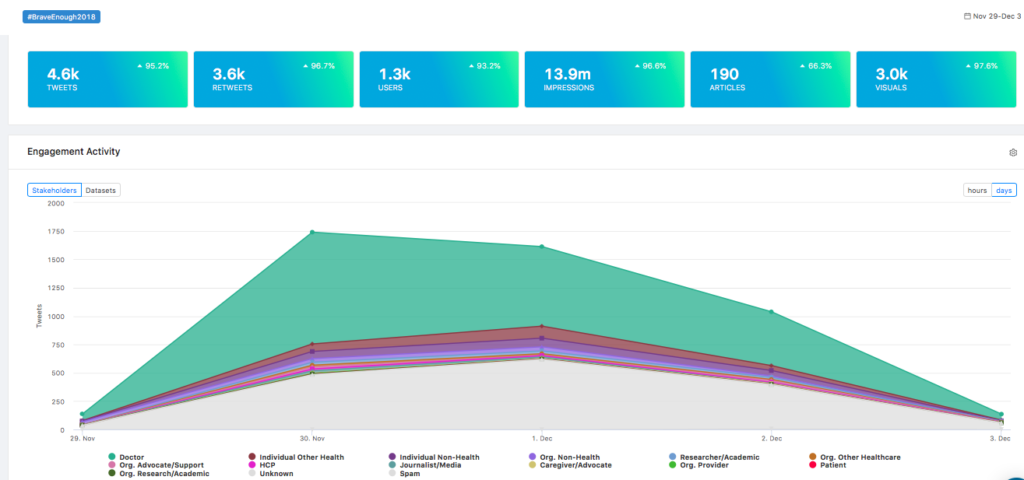
Where did these people come from? How far did their voices spread?
Here’s a geography heat map that proves it – the messages shared at this conference in Arizona were truly heard around the world.
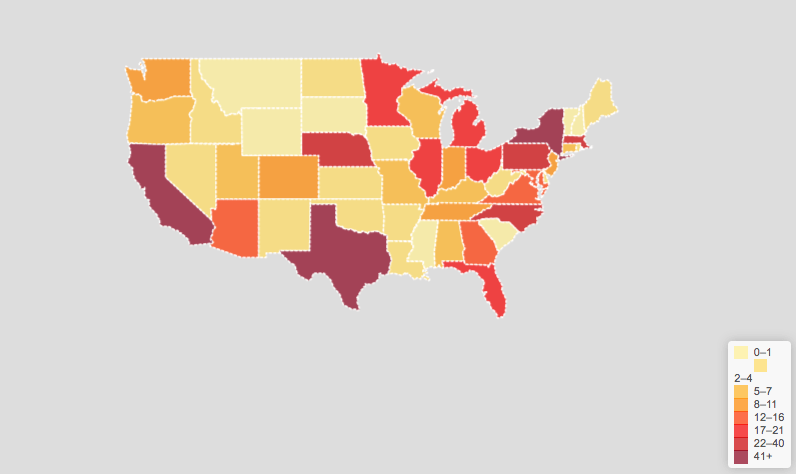
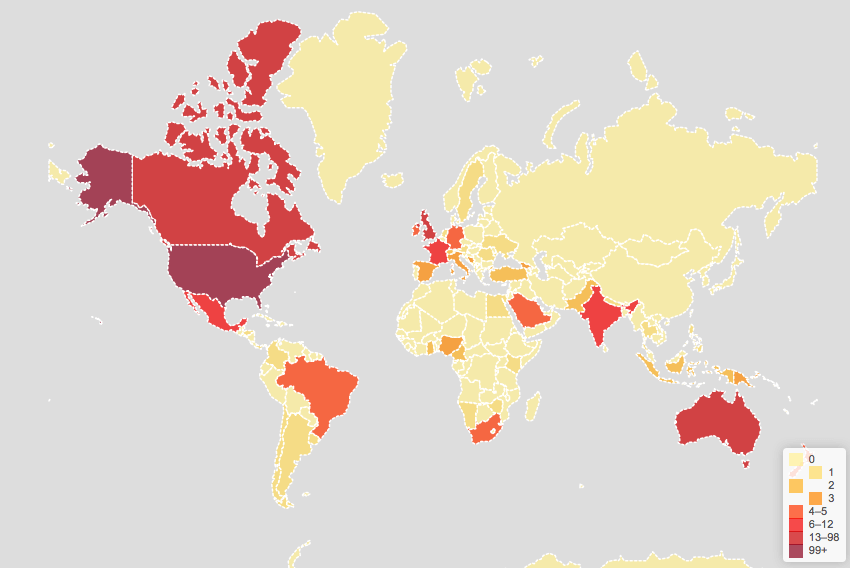
And who were they? Many were already-familiar faces in the #womeninmedicine and #HeForShe community. Many were institutional accounts – let’s not undervalue the importance of having organizations on board to support a culture change. I especially like that many of these spots are occupied by men, too. #HeForShe benefits everyone. Here’s an image of the profile photos of the top 500 influencers of the conference:
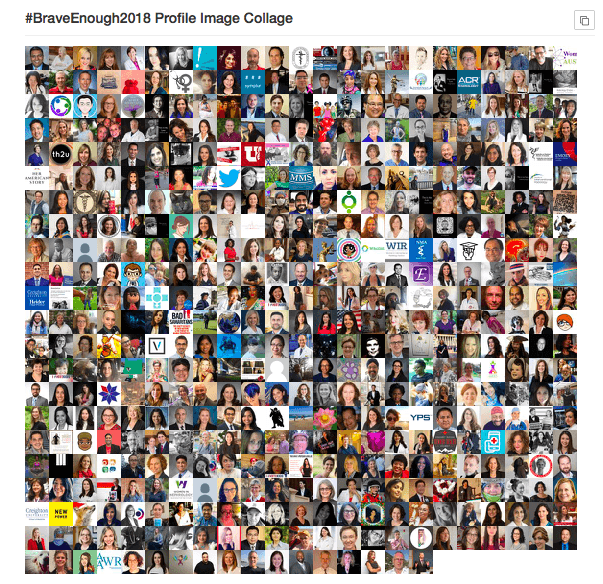
What were they talking about? I have the tweets with the highest engagement below, but first – a handy graph that shows the most frequently used related hashtags. Anyone interested in getting more deeply involved in this community will want to use these hashtags going forward, post-conference:
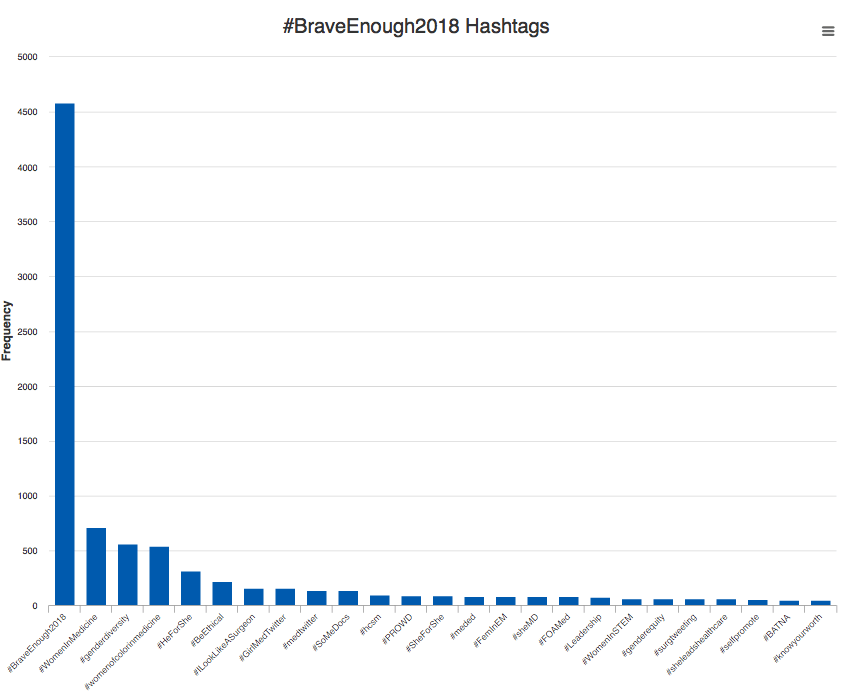
And, here’s a visual of the direction and density of the conversation among participants. Again, this is limited to the software’s top several hundred influencers, based on activity during the conference, number of followers, and relevance to the conversation:
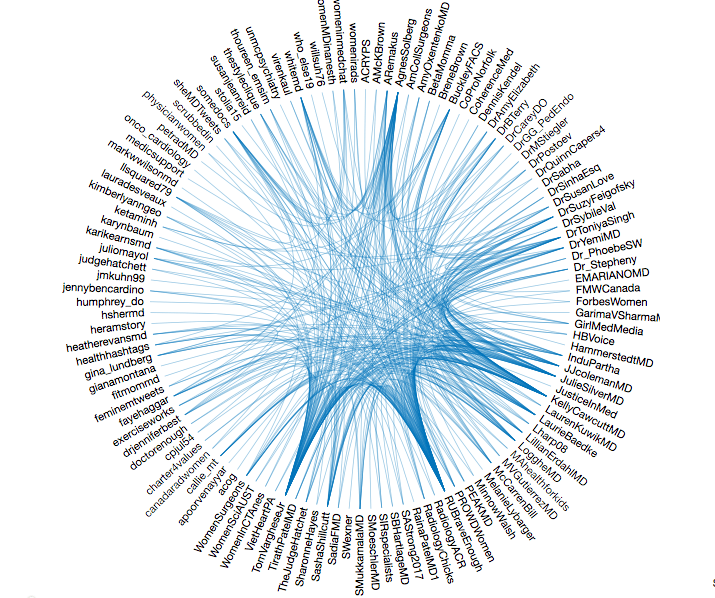
OK, so what exactly were these folks talking about? What matters to them? What was most impactful from this event to those attending and those participating virtually? There’s a clear winner, with a whopping 538 retweets at the time of this analysis. Dr. Yemi (I believe tweeting from Dr. Julie Silver’s session): “Inviteher. Citeher. Recommend her. Stand with her Quote her. Sponsor her. Recognize her. Value her. Promote her. Pay her.” Yep. Also, themes of strength in community, the importance of making sure others know your contributions, and a little personal history from Sasha herself on her journey from burnout to resilience and thriving leadership.
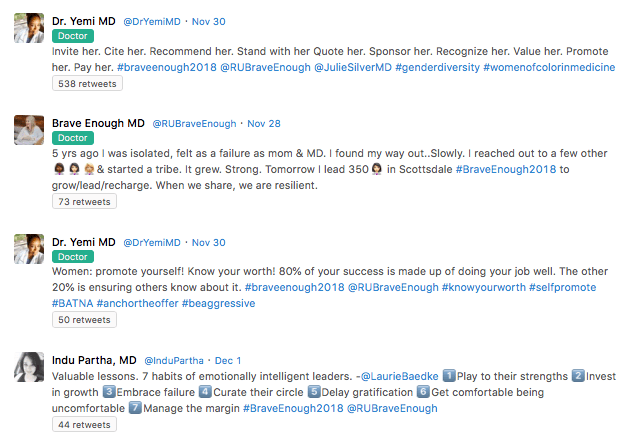
A super-effective comeback to those offensive interactions, vulnerability as a strength and competence instead of a weakness, the perpetuating problem of under-representing women at conferences and other keys to academic promotion which in turns holds them back from being viewed as good candidates for speaking invitations, and the obvious but overlooked observation that the highest performers are the ones who burnout:
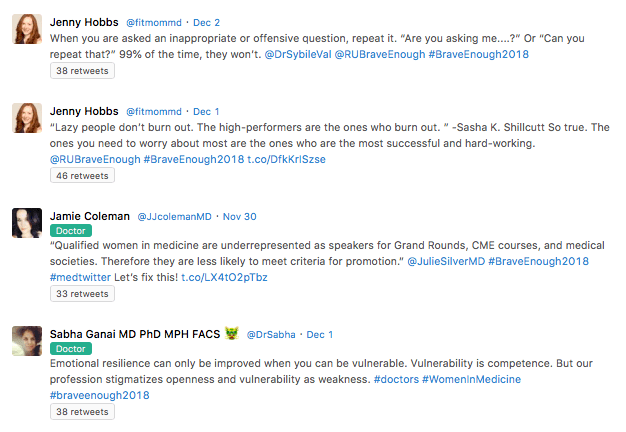
I’ve never been mistaken for a CMO or CEO at the grocery store either! And a reminder that action fosters confidence, so don’t wait to feel confident to take that action! True for guilt as well.
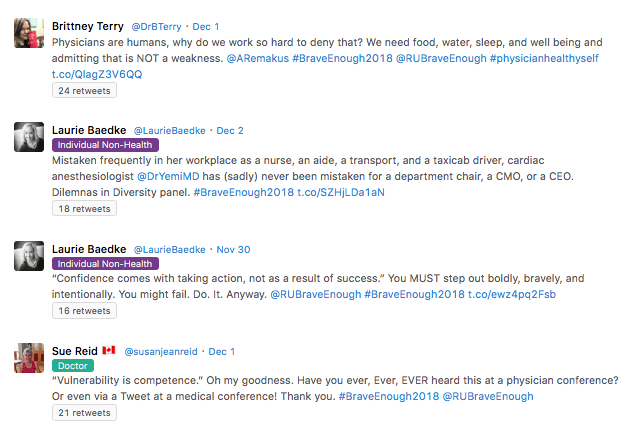
The secret to confidence, the importance of language, and the key role men play in changing the current medical culture:
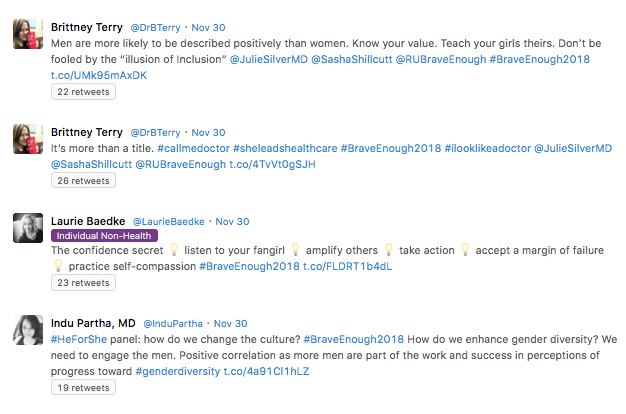
There were thousands more, of course, but these got the most action from others – they resonated. What should you do with these tweets? You can take these as micro bits of advice, and you can get a great idea of what next year’s event will be like. You can also get some real ideas for moving the culture forward, and a list of fabulous speakers on this issue that you can invite to your next event. You can get a deeper understanding of what being a woman in medicine is really like, and what is needed to make progress. You can know who would make a likely partner with you on those endeavors. You can learn, and you can be inspired. And if this resonates with you on a personal level, you can know with great certainty and clear metrics that you are not alone. (And, if you’re among those highlighted in the metrics in this post, you can share these clear metrics of international influence in your promotion dossier).
#womeninmedicine - you can know with great certainty and clear metrics that you are not alone. Here's the proof. Share on X







